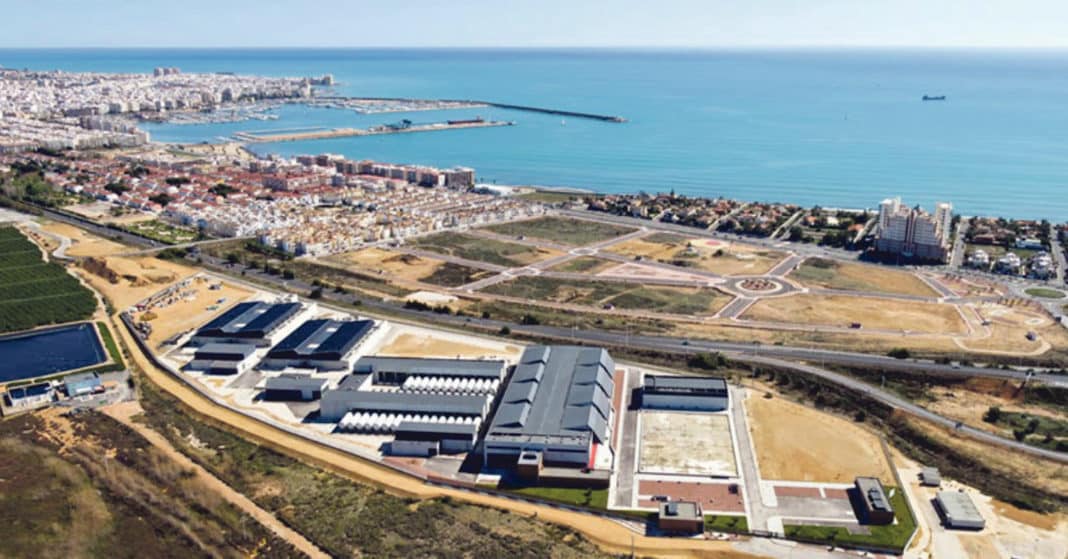- The Torrevieja desalination plant threatens to leave 22,000 Alicante farmers without water this summer
The new conditions for distributing the flow of water from the Torrevieja desalination plant threaten to leave Riegos de Levante and the Right Bank Irrigation Community of Pilar de la Horadada, without water this summer.
The smallholdings cultivated by more than 22,000 small farmers for the most part, in an area of 25,300 hectares spread over the regions of Vega Baja, Baix Vinalopó and l’Alacantí, are at risk.
The problem has only recently become known after the Segura Hydrographic Confederation notified the Central Union of Irrigators of the Tajo-Segura Aqueduct (SCRATS) that the implementation of the new distribution system of desalinated sea water will be will be carried out with the proposal for concessions established by a 2019 law.
The measure means a cut of 12 hectometres for the province of Alicante cubic per year of the flow produced by the Torrevieja desalination plant.
Thus, the 25 cubic hectometres of water that the plant allocated to the Alicante community members, will be reduced to 13 cubic hectometres per year, with the remaining 12 being diverted to the Region of Murcia. The decision has been adopted by the Ministry for Ecological Transition before the end of the current hydrological year, which runs from October 1 to September 30, which has left the two affected irrigation communities with no time or operational capacity to change their water plans or the search for alternative flows.
Moreover, in the correspondence received by the governing boards of Riegos de Levante and by the Right Bank Irrigation Community of Pilar de la Horadada, they are told that not only will they not have desalinated water for the remainder of the hydrological year, but that they will have to return earlier flows to compensate for having consumed more than their share .
This situation is generating a lot of concern among the farmers of the three regions. Especially after considering the possibility that the Government will no longer authorise more transfers from the Tagus-Segura until the end of the current hydrological year.
“This is a real outrage for Vega Baja and Elche, which, however, is not going to affect Murcia at all. And it is even more outrageous taking into account the water that is stored in the reservoirs,” said the president of Asaja- Alicante, José Vicente Andreu.
Andreu himself met in Madrid with the Director General of Water of the Ministry for the Ecological Transition, Teodoro Estrela, and with the Secretary of State for the Environment, Hugo Morán, to analyse the various issue of cutting desalinated water for the province of Alicante.
“At the meeting there was a real commitment from the government representatives. They have said that they are going to find a solution so that the more than 22,000 farmers affected by the application of the new desalinated water concession do not run out of water this summer necessary to irrigate their fields”, said the head of Asaja
“However, this demonstrates, once again, the historical mistreatment that Alicante suffers for being between two lands, between Valencia and between Murcia. We are the most underfunded province of the Tajo-Segura transfer despite the fact that the desalination plant is in our region and we carry the environmental impact of the brine that is discharged into the Mediterranean”, he lamented, referring to the fact that of the 80 cubic hectometres of desalinated water produced annually in Vega Baja, the province of Almería takes 3, Alicante 13 and Murcia the remaining 64 cubic hectometres.
To alleviate the decrease in the distribution of desalinated flows, it is expected that in a few weeks the agreement between the Ministry and the Commonwealth of Canales del Taibilla will be signed , which will make 20 of the 40 hectometres of water resources available to Alicante irrigators.
However, experts warn that episodes of drought are going to be more and more frequent in the province of Alicante, so it is necessary to act quickly and diligently to anticipate a complex future due to water shortages.





